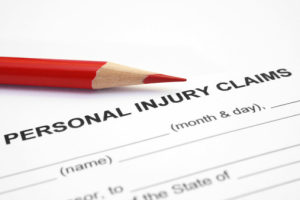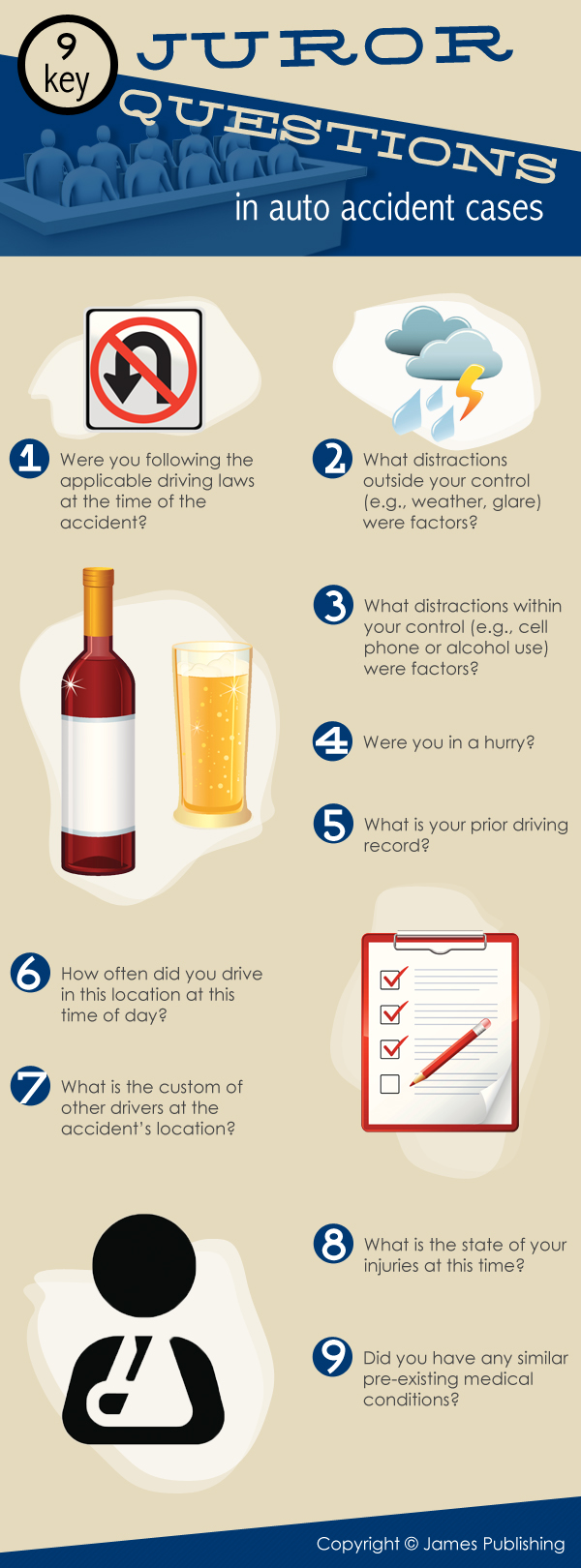The Seattle Personal Injury Blog
Posted Tuesday, September 24, 2013 by
Chris Thayer
 Insurers will often try to negotiate claims by using statements clients make before they are represented by capable Seattle personal injury lawyers. Read on to find out why this can harm your case.
Insurers will often try to negotiate claims by using statements clients make before they are represented by capable Seattle personal injury lawyers. Read on to find out why this can harm your case.
Seattle Personal Injury Lawyers Help Fight Insurer TacticsOne of the mostly commonly used tactics by insurers is using statements you make before your Seattle personal injury lawyers have had a chance to advise you. The insurer will typically write up the statement in way that is very unfavorable to your case. Answers to questions are rephrased so that they sound the way the adjustor wants them to. Without Seattle personal injury attorneys, you are likely to be asked to look the statement over and sign it if you feel that it is technically correct. What they don’t tell you is that this statement may be held against you when it comes time to settle your case.
Seattle Personal Injury Lawyers Give an ExampleHere is an example of one such case from our Seattle personal injury lawyers:
A husband and wife were on a tandem bike ride in a remote area. A truck turned too tightly at an intersection and hit them. The spouses were severely injured – their medical expenses from the accident were in the thousands.
Less than a week after the accident, the truck driver’s adjuster went to their home to get statements. The couple was not represented by Seattle personal injury lawyers at that time. The adjuster didn’t bother to clarify exactly which party she was representing. As a result, the husband made statements that would be used against the couple later. Sadly, having experienced attorneys with them at the time may have prevented this situation.
Don’t let this happen to you – make sure you have skilled Seattle personal injury lawyers on your side when dealing with insurers.
Seattle Personal Injury Attorneys to Represent YouIf you have been injured in an accident due to the negligence of another, you may be able to collect compensation. However, the insurance company representing the defendant really is not on your side. Seattle personal injury attorneys like Chris Thayer know all the most commonly used insurer negotiation tactics. Don’t let yourself be taken advantage of. Call (206) 340-2008 and talk about representation today.
Permalink to this entry
Posted Thursday, September 19, 2013 by
Chris Thayer
Do you want to know how a juror might look at your collision case? A Seattle car accident attorney can help you find out. Below, you’ll see nine important questions for jurors. Lawyers can use these questions to see if they will share your viewpoint on the case.
Permalink to this entry
Posted Thursday, September 12, 2013 by
Chris Thayer
 When a person files an injury claim, perhaps foremost in his mind is whether the claim will succeed, and how long it will take to settle. The claims adjuster in a sense is the individual standing in the way of your settlement; as such, it is worth keeping in mind what the adjuster will look for. A Seattle personal injury attorney can help you understand what adjusters look for in evaluating claims, and which of these factors may stand between you and a swiftly-resolved claim.
When a person files an injury claim, perhaps foremost in his mind is whether the claim will succeed, and how long it will take to settle. The claims adjuster in a sense is the individual standing in the way of your settlement; as such, it is worth keeping in mind what the adjuster will look for. A Seattle personal injury attorney can help you understand what adjusters look for in evaluating claims, and which of these factors may stand between you and a swiftly-resolved claim.
A Seattle Personal Injury Attorney and Medical RecordsIf you work with a Seattle personal injury attorney, the first thing they may tell you is that insurance adjustors look for a strong correlation between your accident, injuries, and medical records. They want to see doctors’ notes that justify your disability timeframe, claims of scarring or permanent harm, and notes on pre-existing conditions or times you injured the same part of your body. In addition, they will certainly want information on whether you were intoxicated or on drugs at the time of the accident. Finally, they will seek out anything that conflicts with the original account given to them regarding the accident, or how you came to harm.
A Seattle Personal Injury Attorney Knows It Pays to Tell the TruthThis in no way means you should misrepresent your case to an adjuster — even if you think it will make them pay more for your claim. Your Seattle personal injury lawyer will have quite a problem explaining why you had two or more different accounts of what happened to cause your injuries.
Final Thoughts from a Seattle Personal Injury AttorneyFinally, every Seattle personal injury lawyer knows that insurance adjustors look closely at whether your number and type of injuries are in line with your medical bills. Adjustors often have a “gut feeling” about proportionality of medical bills to the injuries presented. Soft tissue injuries are commonly considered suspect, as they are difficult to gauge objectively. They are also some of the most common injuries adjustors feel are inflated by claimants in order to gain a large settlement.
A Seattle Personal Injury Attorney for Tough Claims AdjustersIf you have been injured in an accident because of another person’s negligence, you should seek representation from a skilled advocate. Call Seattle personal injury lawyer Chris Thayer at (206) 340-2008 today for help.
Permalink to this entry
Posted Thursday, September 5, 2013 by
Chris Thayer
 Unfortunately, you may encounter an insurance adjuster who lowballs your injury claim. A Seattle personal injury attorney will work to help prevent you from falling prey to common lowballing tactics like the following.
Unfortunately, you may encounter an insurance adjuster who lowballs your injury claim. A Seattle personal injury attorney will work to help prevent you from falling prey to common lowballing tactics like the following.
The Company Policy TacticSeattle personal injury attorneys often deal with adjusters who claim certain items just simply won’t be compensated. These items may include:lost wages due to injury related time off;gas mileage to and from your doctor’s office;long distance calls placed to the adjuster;court costs if the injured party is a minor child.Your Seattle personal injury lawyer will explain why an automatic or company policy denial of these claims is improper. Insurance companies must deal with you in good faith. If any of the above items were caused by or incurred as a result of your accident or injury, they should not be denied in bad faith.
The Hardship Case TacticUnscrupulous adjusters may prey on weak claimants. If you are unemployed or have a low income, they may feel you will accept a low settlement amount in desperation. Let a Seattle personal injury attorney advise you whether any offers made are reasonable. Even less savory, if you suffer from a terminal illness, this may cause an adjuster to lowball your claim if he assumes you won’t survive until trial. Your Seattle personal injury attorney can respond for you.
The “Undeserving” Claimant TacticExpect the adjuster to research your background. If the adjuster thinks a jury wouldn’t like you (perhaps you’re already wealthy), they may use this against you. Again, your Seattle personal injury attorney can address these issues.
While no lawyer can guarantee your case will settle, you can avoid falling victim to improper lowballing tactics with good legal advice.
Contact a Seattle Personal Injury Lawyer for AssistanceIf you have been injured in an accident and someone else is at fault, you may be able to gain compensation. An experienced Seattle personal injury attorney can advocate for you. Contact Chris Thayer today at (206) 340-2008.
Permalink to this entry
Posted Wednesday, August 28, 2013 by
Chris Thayer
 An accomplished Seattle personal injury law firm regularly interacts with various types of insurers and insurance adjusters, from picky and unreasonable to understanding and sympathetic. Working with a judicious insurer on a client’s behalf usually involves a Seattle personal injury law group accepting the case, honestly presenting the evidence, and negotiating a settlement (if possible).
An accomplished Seattle personal injury law firm regularly interacts with various types of insurers and insurance adjusters, from picky and unreasonable to understanding and sympathetic. Working with a judicious insurer on a client’s behalf usually involves a Seattle personal injury law group accepting the case, honestly presenting the evidence, and negotiating a settlement (if possible).
Will a personal injury attorney accept every case?
A decent Seattle personal injury law firm will not accept every personal injury case that comes along. A Seattle personal injury law firm will most likely choose to undertake a case if it might possibly help the claimant.
A Seattle personal injury law group might refuse to accept a personal injury case for several reasons, including:
The client’s compensation expectations are extremely unreasonableThe client’s case stalled for several years with another attorneyThe injured claimant never received any medical diagnoses after the accidentThe only claimant medical records available are ones that will probably damage the claimant’s case
Ultimately, the circumstances surrounding each personal injury case are different and the personal injury law group will gather background information before deciding whether to represent the case.
What happens if the personal injury law group accepts the case?
If the Seattle personal injury law firm accepts the case, it will begin to collect detailed information such as medical records. Personal injury attorneys typically try to share information with insurers because most reasonable insurance adjusters appreciate this transparency and try to reciprocate the treatment.
How might a Seattle personal injury law firm negotiate with an understanding insurer?
The two parties will most likely begin by explaining the details of the caseIf the insurance adjuster believes that the attorney has built a solid personal injury case, he or she may broadly discuss settlement expectationsThe adjuster and claims supervisors can interview the claimantFinally, the adjuster might make a settlement offer and negotiate a final settlement amount with the personal injury law firm
Talented law firms know how to work well with all types of insurers, which can greatly impact the success of a claimant’s personal injury case. If you have been hurt and would like to consult a Seattle personal injury law firm, contact Chris Thayer at (206) 340-2008.
Permalink to this entry
 Insurers will often try to negotiate claims by using statements clients make before they are represented by capable Seattle personal injury lawyers. Read on to find out why this can harm your case.
Insurers will often try to negotiate claims by using statements clients make before they are represented by capable Seattle personal injury lawyers. Read on to find out why this can harm your case.

 When a person files an injury claim, perhaps foremost in his mind is whether the claim will succeed, and how long it will take to settle. The claims adjuster in a sense is the individual standing in the way of your settlement; as such, it is worth keeping in mind what the adjuster will look for. A Seattle personal injury attorney can help you understand what adjusters look for in evaluating claims, and which of these factors may stand between you and a swiftly-resolved claim.
When a person files an injury claim, perhaps foremost in his mind is whether the claim will succeed, and how long it will take to settle. The claims adjuster in a sense is the individual standing in the way of your settlement; as such, it is worth keeping in mind what the adjuster will look for. A Seattle personal injury attorney can help you understand what adjusters look for in evaluating claims, and which of these factors may stand between you and a swiftly-resolved claim. An accomplished Seattle personal injury law firm regularly interacts with various types of insurers and insurance adjusters, from picky and unreasonable to understanding and sympathetic. Working with a judicious insurer on a client’s behalf usually involves a Seattle personal injury law group accepting the case, honestly presenting the evidence, and negotiating a settlement (if possible).
An accomplished Seattle personal injury law firm regularly interacts with various types of insurers and insurance adjusters, from picky and unreasonable to understanding and sympathetic. Working with a judicious insurer on a client’s behalf usually involves a Seattle personal injury law group accepting the case, honestly presenting the evidence, and negotiating a settlement (if possible).